@import url(https://www.ratisbonne.org.il/bk/wp-content/plugins/siteorigin-panels/css/front-flex.min.css); #pgc-3694-0-0 , #pgc-3694-0-2 { width:10%;width:calc(10% – ( 0.9 * 30px ) ) } #pgc-3694-0-1 { width:80%;width:calc(80% – ( 0.2 * 30px ) ) } #pl-3694 #panel-3694-0-1-0 { } #pl-3694 .so-panel { margin-bottom:30px } #pl-3694 .so-panel:last-child { margin-bottom:0px } #pg-3694-0.panel-no-style, #pg-3694-0.panel-has-style > .panel-row-style { -webkit-align-items:flex-start;align-items:flex-start } @media (max-width:780px){ #pg-3694-0.panel-no-style, #pg-3694-0.panel-has-style > .panel-row-style { -webkit-flex-direction:column;-ms-flex-direction:column;flex-direction:column } #pg-3694-0 .panel-grid-cell { margin-right:0 } #pg-3694-0 .panel-grid-cell { width:100% } #pgc-3694-0-0 , #pgc-3694-0-1 { margin-bottom:30px } #pl-3694 .panel-grid-cell { padding:0 } #pl-3694 .panel-grid .panel-grid-cell-empty { display:none } #pl-3694 .panel-grid .panel-grid-cell-mobile-last { margin-bottom:0px } }
Parashat Balak
@import url(https://www.ratisbonne.org.il/bk/wp-content/plugins/siteorigin-panels/css/front-flex.min.css); #pgc-3685-0-0 , #pgc-3685-0-2 { width:10%;width:calc(10% – ( 0.9 * 30px ) ) } #pgc-3685-0-1 { width:80%;width:calc(80% – ( 0.2 * 30px ) ) } #pl-3685 #panel-3685-0-1-0 { } #pl-3685 .so-panel { margin-bottom:30px } #pl-3685 .so-panel:last-child { margin-bottom:0px } #pg-3685-0.panel-no-style, #pg-3685-0.panel-has-style > .panel-row-style { -webkit-align-items:flex-start;align-items:flex-start } @media (max-width:780px){ #pg-3685-0.panel-no-style, #pg-3685-0.panel-has-style > .panel-row-style { -webkit-flex-direction:column;-ms-flex-direction:column;flex-direction:column } #pg-3685-0 .panel-grid-cell { margin-right:0 } #pg-3685-0 .panel-grid-cell { width:100% } #pgc-3685-0-0 , #pgc-3685-0-1 { margin-bottom:30px } #pl-3685 .panel-grid-cell { padding:0 } #pl-3685 .panel-grid .panel-grid-cell-empty { display:none } #pl-3685 .panel-grid .panel-grid-cell-mobile-last { margin-bottom:0px } }
June Song
@import url(https://www.ratisbonne.org.il/bk/wp-content/plugins/siteorigin-panels/css/front-flex.min.css); #pgc-3660-0-0 { width:100%;width:calc(100% – ( 0 * 30px ) ) } #pl-3660 #panel-3660-0-0-0 , #pl-3660 #panel-3660-1-1-0 , #pl-3660 #panel-3660-2-1-0 , #pl-3660 #panel-3660-2-2-0 , #pl-3660 #panel-3660-2-3-0 { } #pg-3660-0 , #pg-3660-1 , #pl-3660 .so-panel { margin-bottom:30px } #pgc-3660-1-0 , #pgc-3660-1-2 , #pgc-3660-2-0 , #pgc-3660-2-4 { width:5%;width:calc(5% – ( 0.95 * 30px ) ) } #pgc-3660-1-1 { width:90%;width:calc(90% – ( 0.1 * 30px ) ) } #pgc-3660-2-1 , #pgc-3660-2-2 , #pgc-3660-2-3 { width:30%;width:calc(30% – ( 0.7 * 30px ) ) } #pl-3660 .so-panel:last-child { margin-bottom:0px } #pg-3660-0.panel-no-style, #pg-3660-0.panel-has-style > .panel-row-style , #pg-3660-1.panel-no-style, #pg-3660-1.panel-has-style > .panel-row-style , #pg-3660-2.panel-no-style, #pg-3660-2.panel-has-style > .panel-row-style { -webkit-align-items:flex-start;align-items:flex-start } @media (max-width:780px){ #pg-3660-0.panel-no-style, #pg-3660-0.panel-has-style > .panel-row-style , #pg-3660-1.panel-no-style, #pg-3660-1.panel-has-style > .panel-row-style , #pg-3660-2.panel-no-style, #pg-3660-2.panel-has-style > .panel-row-style { -webkit-flex-direction:column;-ms-flex-direction:column;flex-direction:column } #pg-3660-0 .panel-grid-cell , #pg-3660-1 .panel-grid-cell , #pg-3660-2 .panel-grid-cell { margin-right:0 } #pg-3660-0 .panel-grid-cell , #pg-3660-1 .panel-grid-cell , #pg-3660-2 .panel-grid-cell { width:100% } #pgc-3660-1-0 , #pgc-3660-1-1 , #pgc-3660-2-0 , #pgc-3660-2-1 , #pgc-3660-2-2 , #pgc-3660-2-3 { margin-bottom:30px } #pl-3660 .panel-grid-cell { padding:0 } #pl-3660 .panel-grid .panel-grid-cell-empty { display:none } #pl-3660 .panel-grid .panel-grid-cell-mobile-last { margin-bottom:0px } }
REFLECTIONS ON THE SUNDAY READINGS FOR THE BIRTH OF JOHN THE BAPTIST
@import url(https://www.ratisbonne.org.il/bk/wp-content/plugins/siteorigin-panels/css/front-flex.min.css); #pgc-3587-0-0 , #pgc-3587-0-2 { width:10%;width:calc(10% – ( 0.9 * 30px ) ) } #pgc-3587-0-1 { width:80%;width:calc(80% – ( 0.2 * 30px ) ) } #pl-3587 #panel-3587-0-1-0 { } #pl-3587 .so-panel { margin-bottom:30px } #pl-3587 .so-panel:last-child { margin-bottom:0px } #pg-3587-0.panel-no-style, #pg-3587-0.panel-has-style > .panel-row-style { -webkit-align-items:flex-start;align-items:flex-start } @media (max-width:780px){ #pg-3587-0.panel-no-style, #pg-3587-0.panel-has-style > .panel-row-style { -webkit-flex-direction:column;-ms-flex-direction:column;flex-direction:column } #pg-3587-0 .panel-grid-cell { margin-right:0 } #pg-3587-0 .panel-grid-cell { width:100% } #pgc-3587-0-0 , #pgc-3587-0-1 { margin-bottom:30px } #pl-3587 .panel-grid-cell { padding:0 } #pl-3587 .panel-grid .panel-grid-cell-empty { display:none } #pl-3587 .panel-grid .panel-grid-cell-mobile-last { margin-bottom:0px } }
Parashat Chukat
@import url(https://www.ratisbonne.org.il/bk/wp-content/plugins/siteorigin-panels/css/front-flex.min.css); #pgc-3578-0-0 , #pgc-3578-0-2 { width:10%;width:calc(10% – ( 0.9 * 30px ) ) } #pgc-3578-0-1 { width:80%;width:calc(80% – ( 0.2 * 30px ) ) } #pl-3578 #panel-3578-0-1-0 { } #pl-3578 .so-panel { margin-bottom:30px } #pl-3578 .so-panel:last-child { margin-bottom:0px } #pg-3578-0.panel-no-style, #pg-3578-0.panel-has-style > .panel-row-style { -webkit-align-items:flex-start;align-items:flex-start } @media (max-width:780px){ #pg-3578-0.panel-no-style, #pg-3578-0.panel-has-style > .panel-row-style { -webkit-flex-direction:column;-ms-flex-direction:column;flex-direction:column } #pg-3578-0 .panel-grid-cell { margin-right:0 } #pg-3578-0 .panel-grid-cell { width:100% } #pgc-3578-0-0 , #pgc-3578-0-1 { margin-bottom:30px } #pl-3578 .panel-grid-cell { padding:0 } #pl-3578 .panel-grid .panel-grid-cell-empty { display:none } #pl-3578 .panel-grid .panel-grid-cell-mobile-last { margin-bottom:0px } }
11th SUNDAY OF THE YEAR
@import url(https://www.ratisbonne.org.il/bk/wp-content/plugins/siteorigin-panels/css/front-flex.min.css); #pgc-3554-0-0 , #pgc-3554-0-2 { width:10%;width:calc(10% – ( 0.9 * 30px ) ) } #pgc-3554-0-1 { width:80%;width:calc(80% – ( 0.2 * 30px ) ) } #pl-3554 #panel-3554-0-1-0 { } #pl-3554 .so-panel { margin-bottom:30px } #pl-3554 .so-panel:last-child { margin-bottom:0px } #pg-3554-0.panel-no-style, #pg-3554-0.panel-has-style > .panel-row-style { -webkit-align-items:flex-start;align-items:flex-start } @media (max-width:780px){ #pg-3554-0.panel-no-style, #pg-3554-0.panel-has-style > .panel-row-style { -webkit-flex-direction:column;-ms-flex-direction:column;flex-direction:column } #pg-3554-0 .panel-grid-cell { margin-right:0 } #pg-3554-0 .panel-grid-cell { width:100% } #pgc-3554-0-0 , #pgc-3554-0-1 { margin-bottom:30px } #pl-3554 .panel-grid-cell { padding:0 } #pl-3554 .panel-grid .panel-grid-cell-empty { display:none } #pl-3554 .panel-grid .panel-grid-cell-mobile-last { margin-bottom:0px } }
Parashat Korach
@import url(https://www.ratisbonne.org.il/bk/wp-content/plugins/siteorigin-panels/css/front-flex.min.css); #pgc-3539-0-0 , #pgc-3539-0-2 { width:10%;width:calc(10% – ( 0.9 * 30px ) ) } #pgc-3539-0-1 { width:80%;width:calc(80% – ( 0.2 * 30px ) ) } #pl-3539 #panel-3539-0-1-0 { } #pl-3539 .so-panel { margin-bottom:30px } #pl-3539 .so-panel:last-child { margin-bottom:0px } #pg-3539-0.panel-no-style, #pg-3539-0.panel-has-style > .panel-row-style { -webkit-align-items:flex-start;align-items:flex-start } @media (max-width:780px){ #pg-3539-0.panel-no-style, #pg-3539-0.panel-has-style > .panel-row-style { -webkit-flex-direction:column;-ms-flex-direction:column;flex-direction:column } #pg-3539-0 .panel-grid-cell { margin-right:0 } #pg-3539-0 .panel-grid-cell { width:100% } #pgc-3539-0-0 , #pgc-3539-0-1 { margin-bottom:30px } #pl-3539 .panel-grid-cell { padding:0 } #pl-3539 .panel-grid .panel-grid-cell-empty { display:none } #pl-3539 .panel-grid .panel-grid-cell-mobile-last { margin-bottom:0px } }
News Bulletin May 2018
@import url(https://www.ratisbonne.org.il/bk/wp-content/plugins/siteorigin-panels/css/front-flex.min.css); #pgc-3513-0-0 { width:100%;width:calc(100% – ( 0 * 30px ) ) } #pl-3513 #panel-3513-0-0-0 { } #pl-3513 .so-panel { margin-bottom:30px } #pl-3513 .so-panel:last-child { margin-bottom:0px } #pg-3513-0.panel-no-style, #pg-3513-0.panel-has-style > .panel-row-style { -webkit-align-items:flex-start;align-items:flex-start } @media (max-width:780px){ #pg-3513-0.panel-no-style, #pg-3513-0.panel-has-style > .panel-row-style { -webkit-flex-direction:column;-ms-flex-direction:column;flex-direction:column } #pg-3513-0 .panel-grid-cell { margin-right:0 } #pg-3513-0 .panel-grid-cell { width:100% } #pl-3513 .panel-grid-cell { padding:0 } #pl-3513 .panel-grid .panel-grid-cell-empty { display:none } #pl-3513 .panel-grid .panel-grid-cell-mobile-last { margin-bottom:0px } }
10th Sunday in Ordinary Time
@import url(https://www.ratisbonne.org.il/bk/wp-content/plugins/siteorigin-panels/css/front-flex.min.css); #pgc-3495-0-0 , #pgc-3495-0-2 { width:10%;width:calc(10% – ( 0.9 * 30px ) ) } #pgc-3495-0-1 { width:80%;width:calc(80% – ( 0.2 * 30px ) ) } #pl-3495 #panel-3495-0-1-0 { } #pl-3495 .so-panel { margin-bottom:30px } #pl-3495 .so-panel:last-child { margin-bottom:0px } #pg-3495-0.panel-no-style, #pg-3495-0.panel-has-style > .panel-row-style { -webkit-align-items:flex-start;align-items:flex-start } @media (max-width:780px){ #pg-3495-0.panel-no-style, #pg-3495-0.panel-has-style > .panel-row-style { -webkit-flex-direction:column;-ms-flex-direction:column;flex-direction:column } #pg-3495-0 .panel-grid-cell { margin-right:0 } #pg-3495-0 .panel-grid-cell { width:100% } #pgc-3495-0-0 , #pgc-3495-0-1 { margin-bottom:30px } #pl-3495 .panel-grid-cell { padding:0 } #pl-3495 .panel-grid .panel-grid-cell-empty { display:none } #pl-3495 .panel-grid .panel-grid-cell-mobile-last { margin-bottom:0px } }
Parashat Shelach Lecha
@import url(https://www.ratisbonne.org.il/bk/wp-content/plugins/siteorigin-panels/css/front-flex.min.css); #pgc-3488-0-0 , #pgc-3488-0-2 { width:10%;width:calc(10% – ( 0.9 * 30px ) ) } #pgc-3488-0-1 { width:80%;width:calc(80% – ( 0.2 * 30px ) ) } #pl-3488 #panel-3488-0-1-0 { } #pl-3488 .so-panel { margin-bottom:30px } #pl-3488 .so-panel:last-child { margin-bottom:0px } #pg-3488-0.panel-no-style, #pg-3488-0.panel-has-style > .panel-row-style { -webkit-align-items:flex-start;align-items:flex-start } @media (max-width:780px){ #pg-3488-0.panel-no-style, #pg-3488-0.panel-has-style > .panel-row-style { -webkit-flex-direction:column;-ms-flex-direction:column;flex-direction:column } #pg-3488-0 .panel-grid-cell { margin-right:0 } #pg-3488-0 .panel-grid-cell { width:100% } #pgc-3488-0-0 , #pgc-3488-0-1 { margin-bottom:30px } #pl-3488 .panel-grid-cell { padding:0 } #pl-3488 .panel-grid .panel-grid-cell-empty { display:none } #pl-3488 .panel-grid .panel-grid-cell-mobile-last { margin-bottom:0px } }
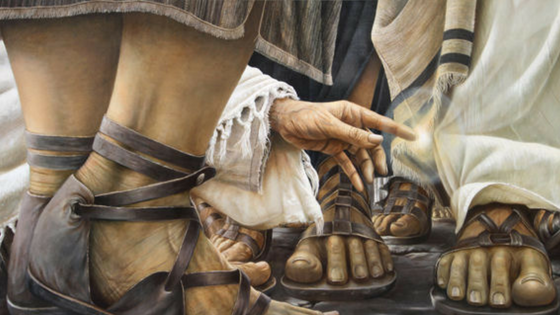
 The readings for the 13th Sunday in Ordinary time remind us that our life is to be lived in awareness that we are fashioned in the image and likeness of God. This understanding leads us to see how in our relationships with all there is, we make manifest God’s nature and presence fully alive, one and whole with all of creation.
The readings for the 13th Sunday in Ordinary time remind us that our life is to be lived in awareness that we are fashioned in the image and likeness of God. This understanding leads us to see how in our relationships with all there is, we make manifest God’s nature and presence fully alive, one and whole with all of creation.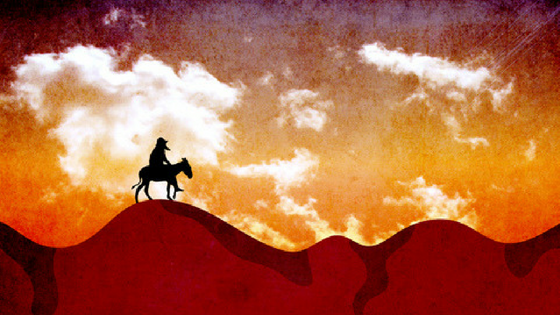
 Every time I write a Sunday or a Torah commentary, the sweet memories of Bat Kol flood my mind; the wisdom of the classroom learning and the havrutah, the weekend trips to sacred sanctuaries, the sacredness of the dry desert experience, Shabbat Meals and praying in the synagogues, the Rabbis and the Professors who assisted us in the excavation of the Word. The late Brother Jack Driscoll in his very humble and humorous style of teaching, always encouraging us. Jack always reminded us, please try to read the whole Torah portion for the week. If you can’t, read at least a few chapters, if not, try and read one chapter and if you are really struggling, just read the first verse of the Parashat Hashavuah (Torah portion for the week), where the title of the Torah portion is taken from. You are great Bro. Jack Driscoll, and to all of you, who are called to a live a life of service at Bat Kol Institute.
Every time I write a Sunday or a Torah commentary, the sweet memories of Bat Kol flood my mind; the wisdom of the classroom learning and the havrutah, the weekend trips to sacred sanctuaries, the sacredness of the dry desert experience, Shabbat Meals and praying in the synagogues, the Rabbis and the Professors who assisted us in the excavation of the Word. The late Brother Jack Driscoll in his very humble and humorous style of teaching, always encouraging us. Jack always reminded us, please try to read the whole Torah portion for the week. If you can’t, read at least a few chapters, if not, try and read one chapter and if you are really struggling, just read the first verse of the Parashat Hashavuah (Torah portion for the week), where the title of the Torah portion is taken from. You are great Bro. Jack Driscoll, and to all of you, who are called to a live a life of service at Bat Kol Institute.
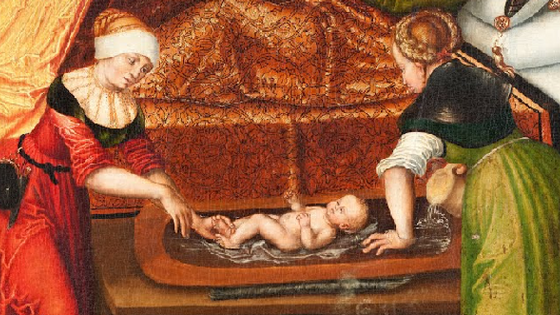

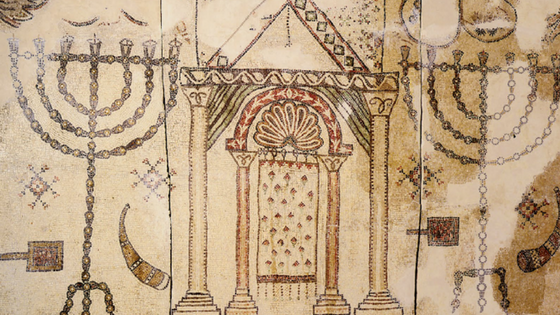

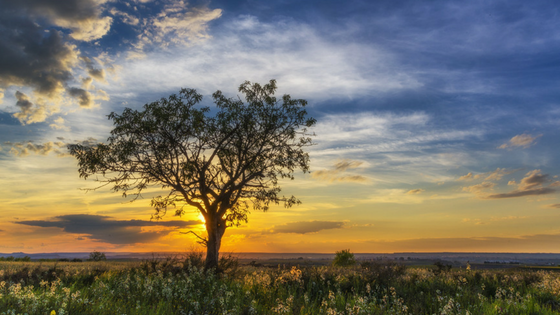
 Our readings today speak of the growth of God’s kingdom – and our dependence on God for that growth. The gospel reading from Mark is taken from his central teaching section, concerning the parables of the kingdom of God. Many of them involve miraculous appearance and inexplicable growth as a metaphor for the kingdom: “the seed is sprouting and growing; how, he does not know.” Great trees, typically cedars, were symbols of powerful empires – as we see in our reading from Ezekiel 17 – but mustard plants are invasive shrubs that grow to be a few feet high. Like many other parables, this one is satirical and humorous: the kingdom is like a scrubby, invasive bush! It suggests that “the kingdom of God” starts from a very small beginning, but grows miraculously.
Our readings today speak of the growth of God’s kingdom – and our dependence on God for that growth. The gospel reading from Mark is taken from his central teaching section, concerning the parables of the kingdom of God. Many of them involve miraculous appearance and inexplicable growth as a metaphor for the kingdom: “the seed is sprouting and growing; how, he does not know.” Great trees, typically cedars, were symbols of powerful empires – as we see in our reading from Ezekiel 17 – but mustard plants are invasive shrubs that grow to be a few feet high. Like many other parables, this one is satirical and humorous: the kingdom is like a scrubby, invasive bush! It suggests that “the kingdom of God” starts from a very small beginning, but grows miraculously.
 The Levite rebels proclaim to Moses and Aaron: “ You have gone too far! For all the community is holy, all of them, and Adonai is in their midst. Why then do you raise yourselves above the Lord’s congregation?”(Numbers 16:3)
The Levite rebels proclaim to Moses and Aaron: “ You have gone too far! For all the community is holy, all of them, and Adonai is in their midst. Why then do you raise yourselves above the Lord’s congregation?”(Numbers 16:3)

 We see Jesus today so busy ministering to people that he and his disciples could not even eat. The previous verses and chapters of Mark (see Mk 1 and 2) give us a good view of his whereabouts. He had just appointed the twelve (Mk 3:13-19) and he is going around healing people of various sicknesses, driving out demons and preaching. In the episode we are reading, Jesus went home and two groups of people catch our attention. These are groups we would rather not identify with because of their negative reaction to Jesus – his “family” who “went out to restrain him” and the scribes from Jerusalem who say “he has Beelzebul.” Let us take a good look at these two groups, Jesus’ family and the scribes from Jerusalem. Who are they? What were they thinking? What were they feeling?
We see Jesus today so busy ministering to people that he and his disciples could not even eat. The previous verses and chapters of Mark (see Mk 1 and 2) give us a good view of his whereabouts. He had just appointed the twelve (Mk 3:13-19) and he is going around healing people of various sicknesses, driving out demons and preaching. In the episode we are reading, Jesus went home and two groups of people catch our attention. These are groups we would rather not identify with because of their negative reaction to Jesus – his “family” who “went out to restrain him” and the scribes from Jerusalem who say “he has Beelzebul.” Let us take a good look at these two groups, Jesus’ family and the scribes from Jerusalem. Who are they? What were they thinking? What were they feeling?
 The ‘fight-or-flight” response, also known as the acute stress response, is a physiological reaction of human (and animal) that occurs in response to a perceived harmful attack, event or life threatening situations. The process begins in the brain and as a command center, communicates with the rest of the body to produce the energy to fight or flee. Instead of confidently and triumphantly entering the Promised Land two years after their escape to freedom and wandering in the wilderness, the chosen people of God were suddenly thrown into a panic and gave in to fear and wanted to flee, back to Egypt.
The ‘fight-or-flight” response, also known as the acute stress response, is a physiological reaction of human (and animal) that occurs in response to a perceived harmful attack, event or life threatening situations. The process begins in the brain and as a command center, communicates with the rest of the body to produce the energy to fight or flee. Instead of confidently and triumphantly entering the Promised Land two years after their escape to freedom and wandering in the wilderness, the chosen people of God were suddenly thrown into a panic and gave in to fear and wanted to flee, back to Egypt.